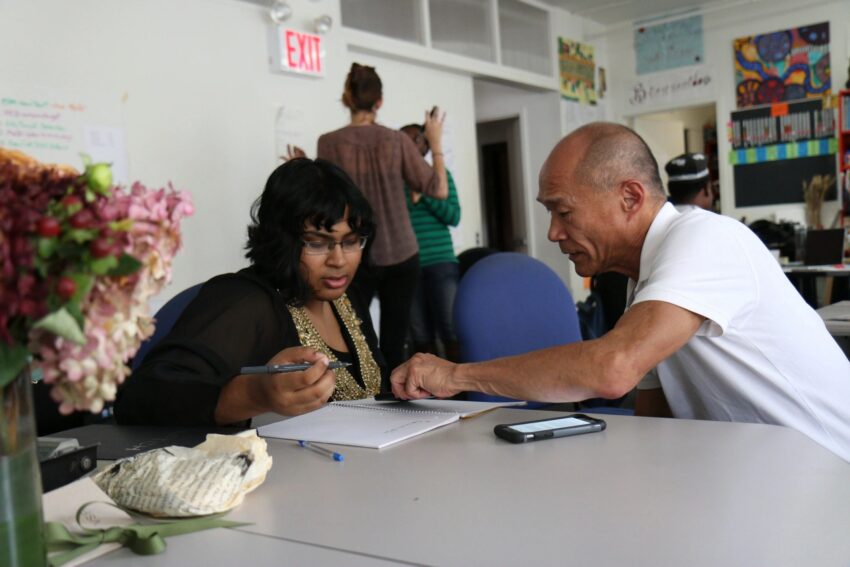As a concept, philanthropy projects an image of giving to the community and those in need. Yet the reality of charity and philanthropy has a much deeper and complex meaning. The term itself encompasses any social practice that contributes towards the betterment of communities.

Philanthropists have a desire to help others and solve social problems. Besides, the federal tax laws provide incentives on their activities and their deductions against income, capital gains, and estate taxes against their donations. Evidence shows that philanthropy benefits both the donor and the receiver in many ways and with positive effects like:
- Happiness
- Lowered stress levels
- Better physical health
- Enhanced sense of connections with others
A person with philanthropist qualities does not need millions to make a career. All you need is to donate time and effort for the greater good.
Turning your Passion into a Career
Remember it is Not Your Money
Whenever working in the philanthropy sector, as either a donor or doer, remember that you will act as a steward, the money entrusted is not our own. You have a clear responsibility to ensure that the money reaches the right people for the right cause. If you are a donor, once you give that charity to an organization, that money is no longer your purpose as the purpose is for charity. Charitable money is, therefore, public service money. Once you realize this notion, you will have an easy time turning your passion for serving others into a career.

Assessment of Success through Results
The judgment of philanthropy success today mostly carries on the monetary value. Foundations boast about how much they donate, and non-profits talk only about how much they bring. It happens because society today assesses the results of successful philanthropy based on money and not results. Nobody cares about the impact, value, and effectiveness in comparison to the money involved. Most new philanthropists who complete their online masters social work have a desire to serve the community. However, the status of funds included masks their efforts drastically. Whenever money becomes the measure of success, it always shifts the focus away from actual work.
Gain Motivation by the Needs of Humanity
People with wealth have made an idea about philanthropy that is just about donating money to a cause that interests them. This idea is not accurate at all, as it has made it difficult for young philanthropists to strive to make a living out of their passion. The philanthropy we see today is not exactly what it is in the real world sense. Philanthropy is not about compassion or how you feel and either for legacy (means you gain after you die). Philanthropy is all about the motivation you learn by observing the needs and how to solve these social problems. Determination is the key that keeps the passion alive and drives you to move forward even if things get hard. If you do not serve humanity and improve the lives of the needy, you are not much of a philanthropist. According to the National Philanthropist Trust (NPT), the US’s motivation for philanthropist activities rose to $373 billion in 2015. Individual gifting is up to 71%, with an average contribution of $274 per household.
Share Resources with People Affected
If you want to achieve a long-run difference in philanthropy, you have to listen and address the people who have a direct effect due to an issue. Moreover, you have to share adequate resources with them. If you prefer to work only with technocrats, you are not doing something very productive.
Take Risks and Stand Up for Others
One of the key points of making a career out of philanthropy is your willingness to take a risk and stand for the oppressed. If you desire to make a change with your career in philanthropy, start taking a stand for something. You have to support the ones fighting the good fight.
Making Improvements in Your Career
Work to Serve, not Help
If philanthropy takes the form of helping, then a philanthropist will rise and become superior. On the other hand, if generosity is about service, it will put you beneath the ones you serve. Philanthropy is all about the service and requirements of destitute and unprivileged people.
Understand the Problem
The heart of a successful philanthropy career is to understand the problem before jumping into a solution, as it will do more damage than good. If the money and effort you contribute do not meet people’s needs, then you have wasted everything. Consider matching the basic needs of people before starting with a contribution to change their life.
Final Word
Building a career in philanthropy and passion for serving is not easy. You need to have the motivation and drive to do something that makes a difference and changes lives. For a successful career, consider your passion as a means not only to serve but also to increase your goal to give back to the community. The critical aspect of here is to look at the basic needs of people rather than defining your actions.


